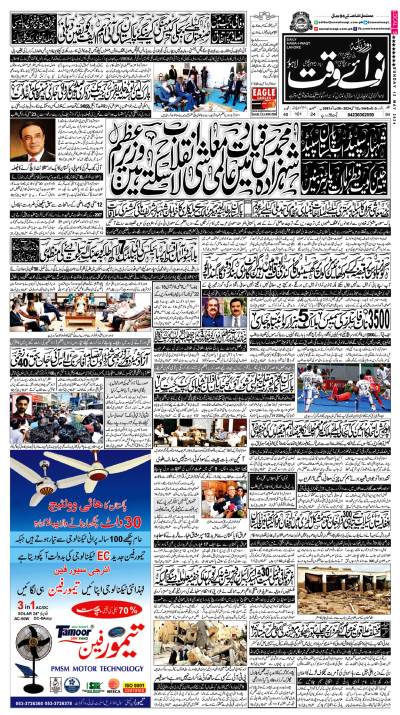We appear to live in a miracle seeking society that desperately seeks a saviour. Do we deserve a saviour or do saviours even exist, are questions we conveniently ignore. We care less about our intellectual growth as a nation, and remain inclined towards unguarded emotions. We easily believe in hearsay and embrace conspiracy theories. We prefer to live in our self assumed glory of the past and expect the advent of some super hero with a magic wand to fix our problems.
Don’t we love it when someone claims to solve our energy crisis overnight by a revolutionary water fuelled car? Who cares if this is scientifically incorrect as no one likes to demolish one’s castles of hope. On the flipside, we shamelessly disown and oppress those who really work hard, excel in their fields, prove themselves and really deserve to be remembered as heroes.
How we treated and continue to treat the first noble laureate of Pakistan, Dr. Abdus Salam, sums it up.
He selflessly worked for the country, but in return we disgraced him in life and in death. We had a role model and a golden opportunity to step on the path of scientific and socio-economic development but we didn’t avail it. Instead we used the instrument of religion and questioned his personal faith that had nothing to do with his outstanding scientific work. He deserved a standing ovation but we chose to label him a traitor.
However, in the rest of the world in general and in the scientific community in particular, he is worshipped and regarded as one of the brightest minds of the 20th century – a scientific visionary whose research work led to the discovery of the Higgs bosons.
When we applaud the contribution of Albert Einstein or idealize Stephen Hawking, do we care about their religious views? When we quote Carl Sagan or Richard Feynman, do we ever think about their faith? No, we don’t. Every sane person knows how private the matter of faith is, and that science and religious judgments should better be kept separate.
But the irony is when it comes to owning Dr. Abdus Salam, we find ourselves vulnerable, and hence either we keep ourselves mum or put a disclaimer to save our skin. This happens even among the people belonging to the scientific community of Pakistan.
Here’s one of the examples.
“Global Science” – one of a few science magazines of Pakistan published an essay on Dr. Abdus Salam in its November 2013 edition. The editor wrote a note before it in order to clarify his position before the readers.
But that didn’t work.
The next month, the magazine published a hate letter sent to the editor by one of the readers in which Dr. Abdus Salam was called as a ‘cursed one’ (mal’oon) and a ‘heretic’ (zandeeq).
The letter termed Ahmadiyya community as ‘apostate’ (murtad) and ‘liable to death’ (wajib-ul-qat’l). The writer referred to Dr. Abdus Salam as an ugly blot (bad-numa daagh) for Islam and instructed the editor to write against the Ahmadiyya community in his next edition to prove himself a devoted Muslim.
Extremely defensive, the editor replied that he had published the letter in its original form, and that there would be no further debate – for or against. So it was okay to publish hate speech that targeted not only an individual but also against an entire community, but replying to the letter was not allowed.
What broke me down is the fact that the bigoted content was not published in any sectarian or jihadi literature. It was published in an established and well reputed science magazine which has already completed 18 years of publication.
A disclaimer before the start of the essay on Dr. Abdus Salam, then publishing the hate letter the next month and closing the topic without allowing a rebuttal, not only expresses insecurity, but also indirectly promotes religious bigotry. It reflects an intolerant mindset of the society that is the biggest hindrance to interfaith harmony and development of a true scientific culture in this country. It reminds us of the dark ages of the Europe where the church had an absolute power and there was no place for rational thinking or intellectual discussions.
In the 17th century, Galileo – himself a devout catholic – was forced to retract from the theory of Nicolaus Copernicus under the threat from the Catholic Church. Knowing how the Italian intellectual Giordano Bruno was burned at the stake for his scientific views, Galileo recanted. He saved his life, but still got house arrested and had to live in solitary confinement for the last seven years of his life.
Time changed, Europe learned from the history and finally emerged as a civilized society after a lot of bloodshed and chaos. Galileo couldn’t imagine that in 1992, about 350 years later, Pope John Paul II would make an official apology on his persecution.
Can’t we do the same and offer intellectual and religious freedom to everyone? Can’t we offer the separation of religion and the state, the foremost requisite of progressive societies? Can’t we strive for science – the key for the socio-economic progress?
Today is the 89th birthday of Dr. Abdus Salam. Let’s fight bigotry and own our unsung hero. This would be our collective birthday present to the greatest scientific mind that this country has produced.






